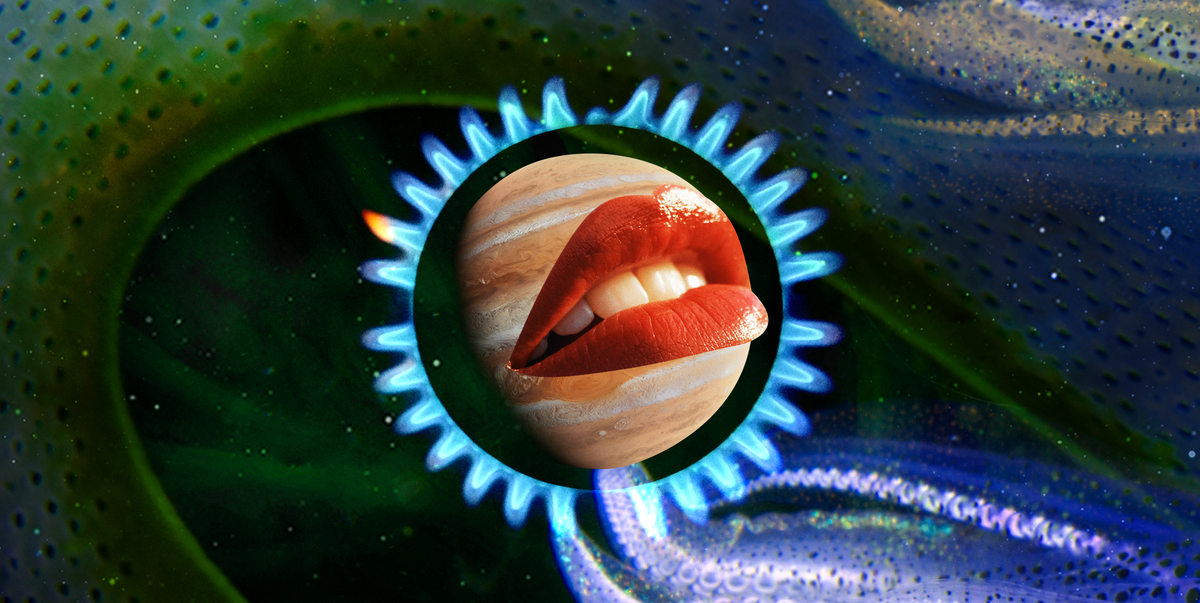Travel
My Mom’s Dementia Was Getting Worse. I Hoped a Mother-Daughter Cruise Would Help Us Reconnect.

We were five hours into our transatlantic flight when I noticed my mom restarting the same movie she‘d just finished. I began to point it out but stopped myself. Why make her feel bad if she‘s enjoying it? But later, when she confused our layover in Amsterdam with a trip to the mall, I reminded her that we were headed to Norway to board a Viking cruise that would take us around the British Isles, stopping in Scotland, Ireland, Northern Ireland, Wales, and England.
“Oh, OK,” she said. Twenty minutes later, she asked again where we were going.
My mom was 67 when she was diagnosed with early-onset dementia, but her memory took a dive after the sudden death of my father in the fall of 2023. As with many people living with memory loss, the smallest changes feel seismic—and losing her husband of 48 years was an atom bomb. Now 72, her decline has been fast and furious, the accompanying depression merciless in its all-consuming fervor.
This was a woman who once took great pride in her appearance—a peacocking Leo who wore big jewelry and bigger turbans. She was a blue-ribbon seamstress, dulcimer player, dog lover, and Wiccan who held séances in our basement. She was the most talented self-taught artist I knew. She raised me, her only child, to believe that every person is as happy as they choose to be. Before the pandemic, we traveled together every few years: China, Spain, Morocco, Ireland, Japan, Iceland. I was the adventurer and she was the extrovert. Agreeing on an itinerary was challenging, because our interests and activity levels were always divergent, but we struck a happy balance in cruising, largely because we could do our own thing by day and reunite at dinner.
I‘d planned this trip with the hope of reconnecting—first as mother and daughter but also as a form of DIY reminiscence therapy, in which dementia patients take a walk down memory lane to spark joy and find comfort in their recollections. I’d chosen Vikings’s two week “British Isles Explorer” voyage from Bergen, Norway to London, because I thought my mom would appreciate the itinerary‘s Beatles-themed tour of Liverpool.
The Fab Four were always on rotation in my mom‘s art studio, and we‘d spent hours bonding over their songs and debating which Beatle was the cutest. I hoped the music might trigger some positive memories in dementia‘s grueling fog; hoped, in some way, it would be an opportunity for her to rediscover her old self. Other excursions—such as hiking in the Scottish Highlands—I‘d bookmarked as just for me. Immersing myself in the beauty of the natural world had become something of a last refuge in recent months. It was a way to escape, however temporarily, a new reality: that our roles as mother and child were forever reversed.
The Viking Venus ship made stops in Norway, England, Wales, Northern Ireland, and Scotland.
Illustration by Ece Erten
My mom’s bewilderment did not abate upon boarding the Viking Venus in Bergen. She asked repeatedly where we were ported, where we were sailing to, and if we had stayed in this “hotel” before. It was like traveling with a ghost: She was here but she was not all there.
In some ways, hers is the cruelest stage of dementia—terrifying for the sufferer, who knows they’re losing their memory but is powerless to stop it, and exhausting for the caregiver, who answers the same questions 10, 12, 20 times a day, a witness to the distressingly fast yet agonizingly slow disintegration of a human mind.
It became clear my hopes of reconnecting during excursions would need to be curbed. The first week, my mom insisted she was “perfectly content” with drawing in the deserted lounges while the rest of the passengers disembarked in port. I knew the attentive crew would assist her if she got disoriented, but I still felt guilty leaving her. Every minute we weren’t spending together felt like a minute wasted—a memory we weren’t making, even if only one of us would remember it.
I went out anyway. I hiked 14 miles along the towering White Cliffs of Dover in Kent, England, and spent hours browsing preserved organs and other chamber-of-horror curiosities at the Surgeons’ Hall Museums in Edinburgh, Scotland. In Invergordon, a town in the Scottish Highlands, I wandered to a community garden where I befriended a bonneted woman sitting on a bench with flowers in her lap. The octogenarian wore time on her face like a pile of unfolded laundry but was keen as the sharpest No. 2 pencil at explaining local politics.
Why couldn’t that be my mom? I wondered bitterly. We used to talk for hours about everything and nothing. Now, she doesn’t even ask how my day was.
Shaking off self-pity, I sleuthed out a food truck targeted at cruise ship workers and ordered a cup of dinuguan, a Filipino pork blood stew, to go. If my mom wouldn’t engage with the world, I’d bring the world to her.
Nine days into the cruise, we pulled into Liverpool—the port I’d been waiting for. I imagined the twin shadows of dementia and depression parting and that, at least for the duration of this four-hour shore excursion, all could be well in the world. That was the plan, anyway.
Viking’s Beatles Experience included drive-bys of the Cavern Club and Hard Days Night Hotel, a photo opportunity at Penny Lane, and an audio tour of Strawberry Field. The bus was packed with gleeful Beatles fans belting out Top 40 hits, but my mom just stared blankly out the bus window. When we pulled up to John Lennon’s old house, she wouldn’t get off. “I’m tired,” she said. But we’d come all this way, I begged. “I’m fine right here,” she said.
How foolish of me to think a silly Beatles tour could lift her from this black hole. “I’m tired” was code—not just tired today, but tired of living.
Seeing all those happy-go-lucky vacationers on that bus, I was consumed with envy. Here were people my mom’s age and older who still had all their faculties, who could walk for hours in port without complaining about screaming back pain, who twisted and shouted to a Beatles cover band at a party on the pool deck long after my mom crawled into bed. They were all still so full of life. Their refusal to spend their golden years withering on the vine was inspiring. I didn’t begrudge them their joie de vivre. I just wished I could steal a little bit of that sunshine for my own mother.
As often happens in travel, the worst day of our cruise was followed by the best. I had booked a solo shore excursion to Cwm Idwal, Wales’ first nature reserve. It was a blue-sky morning, perfectly cloudless, as our group drove through a valley dotted with sheep farms and buttery yellow gorse flowers. The scenery floored me, but I was even more enthralled by the company, making fast friends with a cardiothoracic surgeon and his charming husband. Like so many caretakers, I feel guilty admitting when I get overwhelmed; my burden, after all, is finite. But being in the nature reserve offered a much-needed release.
When I reconnected with my mom on the ship that evening, I found her in good spirits. “I finished my drawing,” she beamed, holding it up for me to see. It was a spot-on portrait of my two-year-old son, Julian. I didn’t see it coming, but this was my mom’s twist-and-shout moment.

Travel can make it easier to meet people where they are at.
Illustration by Ece Erten
I realized then that I needed to meet my mom where she was, to accept the reality about who she can no longer be, and to look for the silver linings anyway. This lesson couldn’t have come soon enough. Standing in front of Stonehenge a few days later, my mom was gobsmacked not by the prehistoric stone circle but by the satiny-white clouds suspended like shaving cream above it. She begged me to take a picture, and I obliged, a dozen times over, capturing the clouds’ blazing edges as the sun slinked out of view.
The more I looked for the rays piercing through the gloom, the more I saw them: the awe my mom showed when she spotted a rare double rainbow over a choppy gray sea in Northern Ireland; how she stood on the balcony of our stateroom, waving enthusiastically to the lone bagpiper bidding the ship adieu in Invergordon; the way her old self emerged every now and again. A few days before the cruise ended, during afternoon tea, she flagged down a handsome waiter. “Damn! Let me get a look at you,” she said, as he stood, turning red. When he hustled away, she winked at me. “Old women can get away with saying stuff like that,” she said. Here she was again: the mother I’d been trying my hardest to summon.
The day before we disembarked, our room steward, Wayan, stopped me in the hallway and said how special it was for me to spend this time with my mother. He lost his own mom seven years ago and still misses her. Whatever time we get is a gift, he said, eyes misting over. I took his hands and thanked him for taking such good care of us.
Our final night on the ship, my mom retired early and I moseyed down to the atrium, where a pianist was playing “Memory” from Cats. A bit on the nose, but I felt myself growing weepy anyway.
My mother is still with me, but she slips a little further away each passing day. Logically, I know the dissolve is preparing me for life without her; in that way, maybe the stitch-by-stitch unraveling makes let-ting go easier. It won’t be long before she won’t know who I am and I’ll likely be looking skyward, taking pictures of the clouds and whispering the lyrics Paul McCartney wrote about his own mother, who died of cancer when he was 14. Let it be, let it be, let it be.







